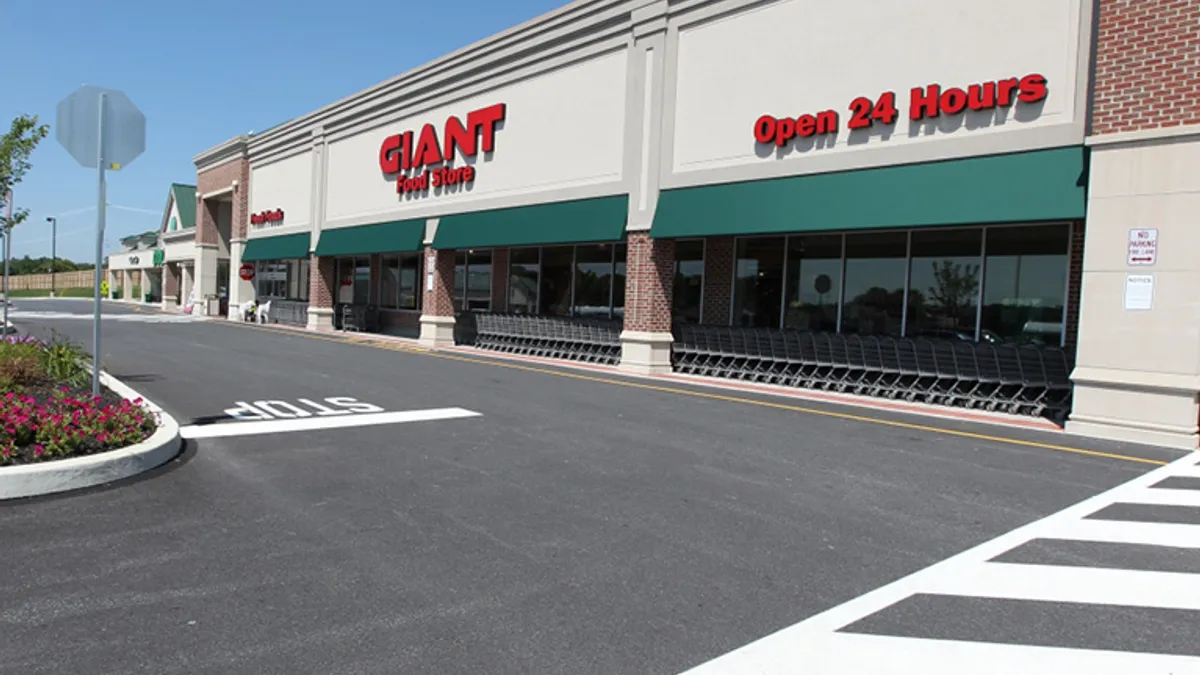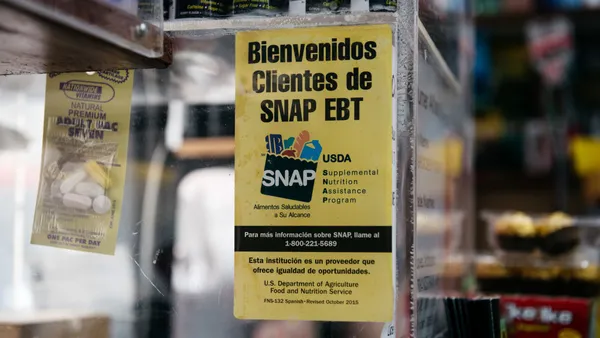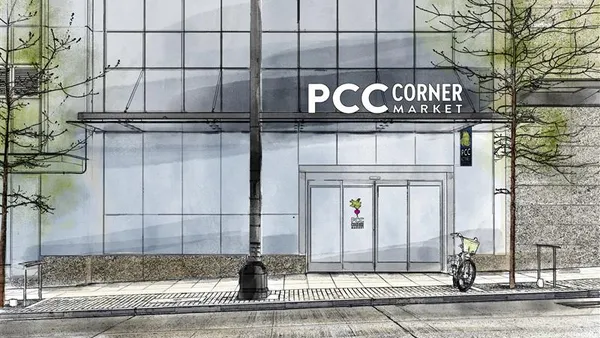Dive Brief:
- Four more Giant stores in Pennsylvania have reached zero waste, which the company designates as meaning more than 90% of a store’s waste is diverted from a landfill or incineration, according to a press release.
- In addition to implementing recycling procedures, The Giant Company team members monitor what is being sent to the trash compactor so nothing that can be recycled gets thrown away by accident. They watch for cardboard that is labeled as garbage, fill designated bins with food waste and scraps for organic recycling, and collect plastic bags, film and empty pharmacy pill bottles that are sent to its recycling center.
- Each store will also partner with Feeding America to donate products to local food banks and the company’s Meat the Needs program, which donates frozen protein to regional food banks.
Dive Insight:
With the addition of these four stores, Giant is chipping away at its goal to get all of its nearly 190 stores to reach zero waste by 2025. Currently one other store — in Cleona, Pennsylvania — has the designation, which it achieved in September 2018.
According to its press release, more than 84% of all waste generated by Giant is already sent to recycling or donations. Giant has also implemented other sustainability measures, including installing a solar field and bee pollinator habitat at its headquarters, reducing emissions, installing energy-efficient fixtures in all stores and improving its sustainable product selection including tea, seafood and coffee.
To help its Cleona store become a zero-waste location, Giant said previously it would find several ways to make an impact, from cleaning empty frosting containers in its bakery to putting corn crates up for grabs for customers to take home and reuse.
Like much of the industry, its parent company Ahold Delhaize has also made commitments to improve its environmental footprint. After meeting many of its 2020 goals, Ahold Delhaize renewed its sustainability targets, including plans to cut food waste in half by 2030 and aim for zero plastic waste with its private label products. Earlier this week, the grocery company also said it would cut carbon emissions by 50% from its stores, distribution centers, operations and offices in the next 10 years.
Just last week, Kroger also launched a recycling program for its private-label line Simple Truth in which customers will be able to recycle more than 300 products, including those not accepted in traditional curbside recycling pickup like bread and product pouches, liners and plastic wrapping. The nation's largest grocer introduced its own Zero Hunger Zero Waste initiative in 2017.













